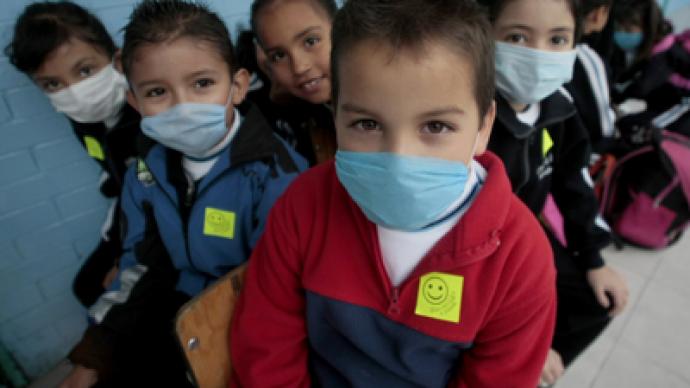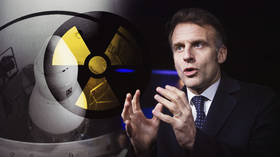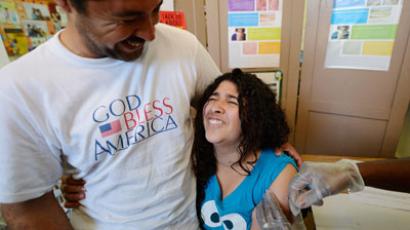One fifth of the world had swine flu due to 2009 pandemic – WHO report

A fifth of the global population was infected with swine flu during the 2009-2010 pandemic, with nearly half of them children, a new study by the WHO reveals. But despite extensive fears, it proved less deadly to people than seasonal flu.
The WHO’s report found that between 20 and 27 per cent of people worldwide caught the H1N1 virus, commonly known as swine flu, during that period.The study revealed that those aged between five and 19 showed the greatest rate of infection, with around forty-seven per cent suffering.In contrast around 11 per cent of people aged 65 and over were infected with the virus.To draw such conclusions researchers from the World Health Organization (WHO) and Imperial College London examined 90,000 blood samples collected during and after the pandemic from as many as 19 countries where the disease was present.The study, published in the journal Influenza and Other Respiratory Viruses, is based on data from published and unpublished H1N1 seroepidemiological studies, scientists explained. "This study is the result of a combined effort by more than 27 research groups worldwide, who all shared their data and experience with us to help improve our understanding of the impact the pandemic had globally," one of the authors, Maria Van Kerkhove, from Imperial College London said.
The countries from which data was gathered include: Australia, Canada, China, Finland, France, Germany, Hong Kong SAR, India, Iran, Italy, Japan, Netherlands, New Zealand, Norway, Reunion Island, Singapore, United Kingdom, United States, and Vietnam.
Seen as every time a person became infected the virus’ antibodies are produced, the research group looked for traces of antibodies to H1N1 virus in numerous blood samples to determine the rates of infection. Therefore, by simply analyzing the prevalence of people with the antibodies before and after the virus pandemic, the researchers managed to estimate the number of those who were infected. At the same time while antibodies are evidence of infection, it does not mean that the person fell ill. Scientists believe that the low rate among older people was due to previous influenza viruses they already had in their blood. So to say, during the H1N1 pandemic, antibodies reacted to swine flu and protected them from being completely infected. Thus, in 14 percent of blood taken from that group showed the presence of such a ‘protection’.In some countries data was not available, but researchers believe the infection rates there were likely to have been similar. "Knowing the proportion of the population infected in different age groups and the proportion of those infected who died will help public health decision-makers plan for … pandemics," said the WHO's Anthony Mounts who helped lead the study.The WHO declared H1N1 swine flu a pandemic in June 2009, after laboratories had identified cases in 74 countries. That status was officially lifted only in August 2010.In 2009 the world was overwhelmed by fear and panic over the ‘deadly’ virus.In countries like Britain or Japan travelers with flu-like symptoms weren’t allowed to disembark without a certificate. In Tokyo’s airport passengers arriving from Mexico, where the outbreak affected many people, were screened for swine flu. In Ukraine the spread of the virus was even depicted as a political act ahead of presidential elections as then president Viktor Yushchenko wanted to postpone the vote. It was seen by the critics as an attempt to win time to gain more support.Critics alleged that the WHO declared the disease a "pandemic" – meaning the disease affects the population of an extensive region, multiple countries or even worldwide – after advice from doctors with close links to pharmaceutical companies as the 16-month episode sparked a surge in demand for vaccines.Some states announced a program of mandatory swine flu vaccination for their public sector workers, sparking fears that it may become compulsory for all of their citizens and residents. The vaccine’s safety has also been also doubted. The latest report by European scientists linked the use of the vaccine to the sleep disorder narcolepsy, in some 800 children and teenagers across Europe.More than 30 million people in 47 countries were inoculated with Pandemrix, which was produced by UK pharmaceutical firm GlaxoSmithKline (GSK) in 2009.It took people more than a year to realize that what was supposed to be a deadly pandemic, turned out to be nothing more than a serious cold.“Our results taken together with recent global pandemic respiratory-associated mortality estimates suggest that the case fatality ratio of the pandemic virus was approximately 0,02%," the WHO report said in June 2012. That figure is in the low range of death tolls from annual "seasonal" flu.The recent study is said to be crucial for better understanding of the H1N1 virus and preparing efforts to improve prediction of future pandemics.“That's incredibly important because we know this will happen again and there is a lot of effort being put into trying to prepare now…for the next one," Maria Van Kerkhove told Reuters in a phone interview.














